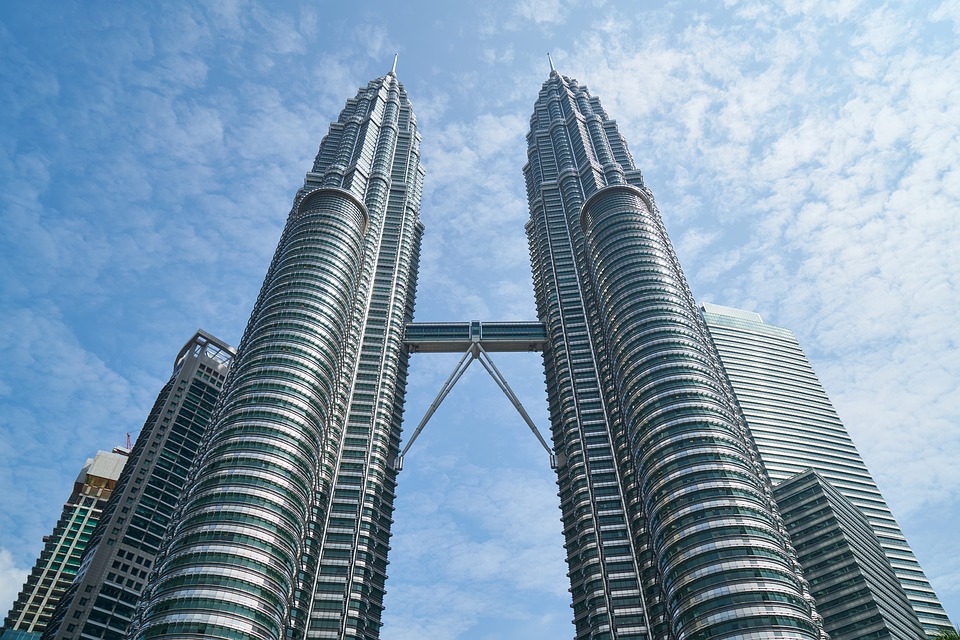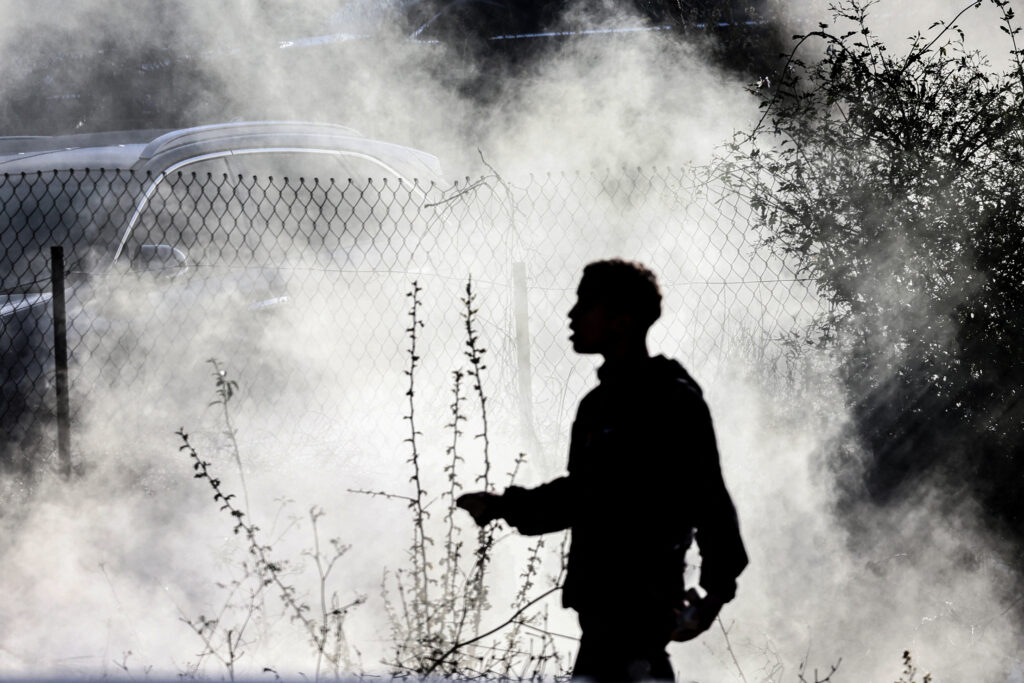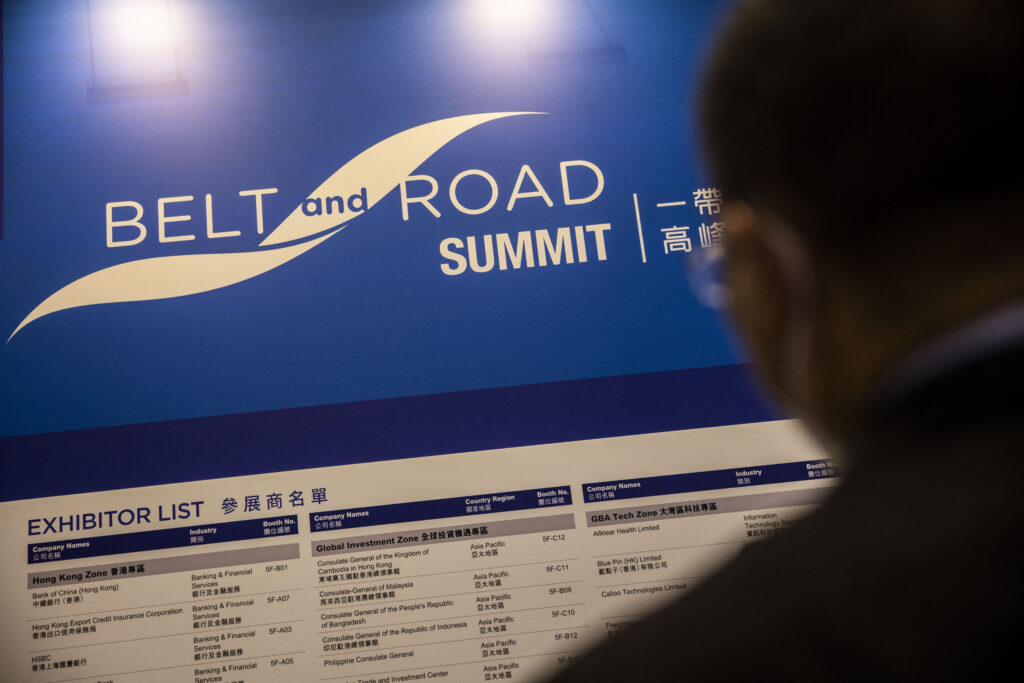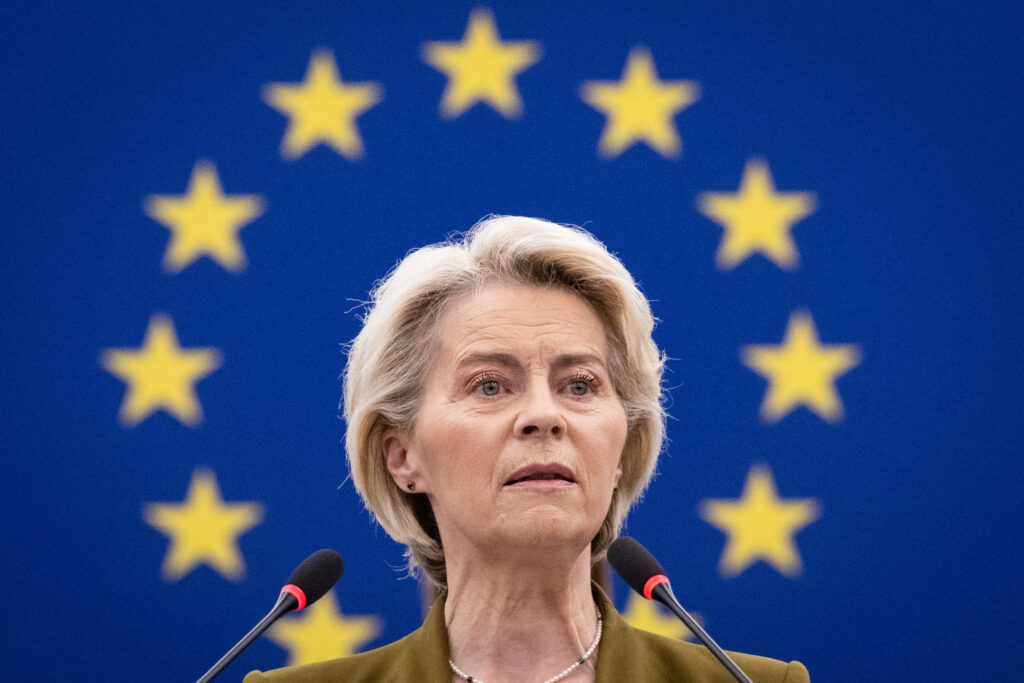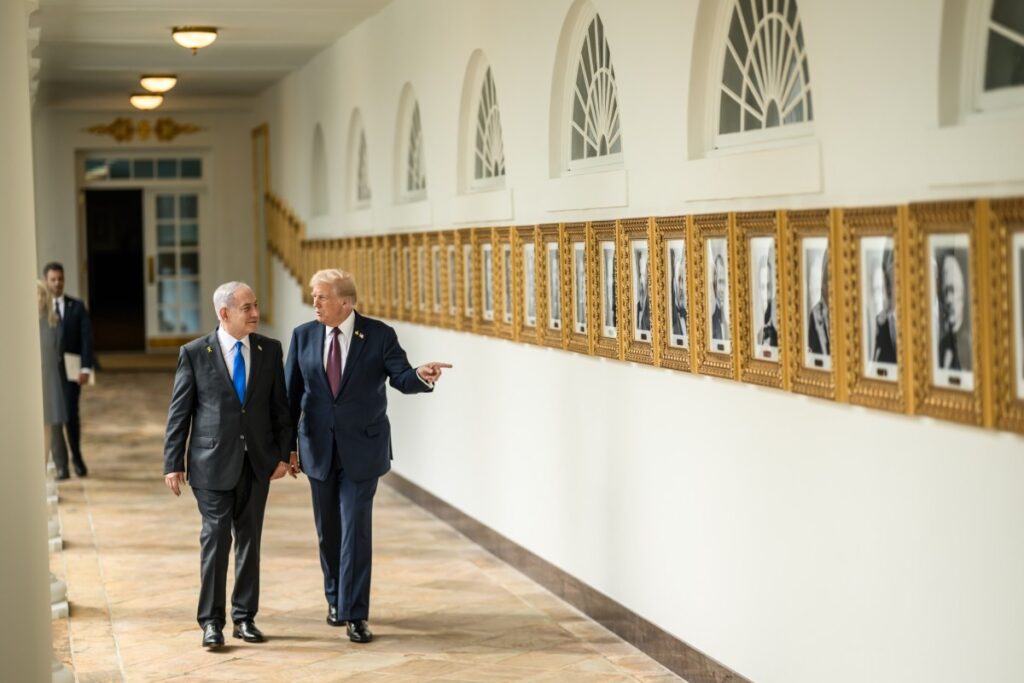Charity Networks Series – A Note from the Editorial Team
Malaysian politicians, pro-Palestinian NGOs in Malaysia, and the Palestinian Islamist Hamas have established a powerful transnational network. Although Malaysia is a country with a Muslim majority and Hamas an Islamist organisation, these networks are not based on common ideological grounds but enable the three different sets of actors involved to pursue their respective strategic interests.
By Maren Koss
Malaysia, which has traditionally had a close relationship with the Palestinians, emphasised its support for the Palestinian cause only recently, after US President Donald Trump’s 6 December 2017 announcement of his decision to recognise Jerusalem as Israel’s capital.[1] Following Trump’s announcement, several mass demonstrations took place in front of the US embassy in Kuala Lumpur. Malaysia’s top politicians, such as then Prime Minister Najib Razak and the recently elected Prime Minister Mahathir Mohamad were among the dominant actors in these demonstrations. The two leaders appeared on stage at separate rallies alongside the other dominant players, namely pro-Palestinian Malaysian NGOs. This cooperation between Malaysia’s top politicians and pro-Palestinian NGOs was no exception. Instead, together with Palestinian politicians, often those close to the Palestinian Islamist Hamas, these NGOs and top Malaysian politicians have established powerful transnational networks, which promote the Palestinian cause and help the actors involved realise their respective interests.
MALAYSIA: SUPPORT FOR THE PALESTINIANS AS A PILLAR OF DOMESTIC POLITICS
Support for the Palestinian cause has been an important element of Malaysia’s foreign policy since the country gained independence in 1957 but it was particularly the Six-Day-War in 1967 that increased the Malaysian public’s awareness of the Palestinian issue. Since then, Malaysia’s government has increasingly supported the Palestinian cause with a view to strengthening its own domestic legitimacy. In 1981, the Palestine Liberation Organization (PLO) was allowed to open an office in Kuala Lumpur. This office was officially recognised by Malaysia as Palestine’s embassy after Yassir Arafat announced Palestine’s independence in 1988. In recent years, Malaysia has expanded its relations to Palestinian political actors beyond the internationally recognised secular Fatah, the dominant player in the PLO, and has also established close contacts with the Islamist Hamas. The latter regularly attends the annual general assemblies of the United Malays National Organisation (UMNO), the dominant player in the Barisan Nasional (BN) coalition and the party that had been in power from the time of Malaysia’s independence in 1957 until it lost the May 2018 elections. During the UMNO annual general assemblies, high-ranking Hamas officials have met key party members such as then Prime Minister Najib and his deputy, Ahmad Zahid Hamidi.
The first reason for Malaysia’s traditional backing of the Palestinians is the country’s general support for peace and justice in the international order and its assistance to those oppressed by dominant powers. The second and more important reason is directly linked to the Islamisation policies the government has promoted since the 1970s. In particular, UMNO has used Islam to achieve legitimacy in Malaysian society, which has a Malay-Muslim majority of 69.1 percent, a Chinese minority of around 23 percent and an Indian minority of about seven percent. UMNO’s Islamisation policies worked in line with the New Economic Policy (NEP) that the government had started in 1971 aiming at supporting the marginalised Malay-Muslim population, which constitutes UMNO’s main support base. In promoting Islamisation, UMNO was seeking to increase its own legitimacy and power and to set itself apart from its main rival for the Malay-Muslim vote, the Islamist party Partai Islam Se-Malaysia (PAS).
CIVIL SOCIETY IN MALAYSIA AND THE EMERGENCE OF PRO-PALESTINIAN NGOS
Since the late 1990s, civil society has been significantly growing in Malaysia, and a variety of NGOs are in existence today. This does not mean, however, that NGOs are able to interact in an open civil space. Instead, they encounter limited freedoms such as the limits to freedom of speech or freedom to assemble. This restriction of the civil space has become more severe since the 2008 elections. Right before the elections took place, a wide range of NGOs had managed to initiate huge demonstrations in protest against a number of ills prevalent in the country ranging from corruption to discrimination of minorities. The most famous civil society actor that emerged at this time was the multi-ethnic Bersih (Malay for “clean”) alliance, a coalition of different civil society organisations calling for free and fair elections. As Bersih’s actions were assumed to have had a critical influence on the outcome of the 2008 elections — UMNO, along with its partners in the BN coalition, lost its two-thirds majority in Parliament for the first time since independence — the space for NGOs became even more limited after the elections.
Despite such limits to the civil space, a vibrant scene of pro-Palestinian NGOs has started to emerge in Malaysia since the beginning of 2009, and Malaysia is today known to be one of the countries with the most active scene of pro-Palestinian NGOs outside of the Palestinian territories. Malaysian civil society activists explain that the war between Israel and Gaza in 2008/09 was the turning point that encouraged them to establish pro-Palestinian NGOs in Malaysia.
The case of the NGO Viva Palestina Malaysia (VPM) illustrates how civil society activists in Malaysia connected during the 2008/09 Gaza war and organised themselves. On 5 January 2009, 50 NGOs came together to build a coalition that later started a campaign against the war in Gaza. This alliance was called “Coalition of Malaysian NGOs against Persecution of Palestinians (COMPLETE)” and was later rebranded as VIVA Palestina Malaysia (VPM). VPM stresses that the founding of this coalition was a “direct consequence of this cowardly bloodbath that descended upon the people of Gaza”.[2] VPM also very clearly emphasises that it pursues a cross-sectarian approach, like almost all pro-Palestinian NGOs in Malaysia, i.e., they do not see themselves as religious organisations but as those that support the Palestinians simply for humanitarian reasons. The NGOs stress that by taking such an approach they hope to rally the support of Malaysian society as a whole and avoid strengthening ethnic tensions within the country. This approach might also help them to avoid getting caught between different political and ethnical camps — an important feature in Malaysian society, which is increasingly divided along ethnic and sectarian lines. To highlight their non-sectarian approach, most of the pro-Palestinian NGOs underline that they do not only support the Palestinians but also other peoples in need, such as the victims of the earthquake in Nepal, the Rohingya Muslims of Myanmar, and the Filipinos in their fight against the Islamic State (IS).
Most of the pro-Palestinian NGOs run projects in the Palestinian territories, mostly in the Gaza Strip. The projects focus on issues such as education, healthcare, and micro-finance. Most of the leading staff of these NGOs have personal links to Gaza. Especially after the wars between Israel and Hamas in 2008/09 and 2012, many of them travelled to Gaza to show their support for the Palestinians. This has not been possible any more following the 2014 war because the border between Egypt and Gaza was closed in 2013 after the fall of President Muhammad Morsi and the Muslim Brotherhood in Egypt.
THE CO-OPTATION OF PRO-PALESTINIAN NGOS IN MALAYSIA
The limits to civil society space in Malaysia apparently have no direct consequences for the pro-Palestinian NGOs. This is for two reasons. First, the political message that the pro-Palestinian NGOs promote is very much in line with that of the Malaysian government’s. Second, pro-Palestinian NGOs have extensively been co-opted by Malaysian politicians, although all of the NGOs claim to be apolitical. Organisations such as the Palestinian Cultural Organization Malaysia (PCOM) or the al-Quds foundation underline that they do not take any political sides — neither in Malaysia nor in the Palestinian territories. They argue that they can only be effective in their work for the Palestinian people if they do not get caught between different political camps. The claim of non-alignment, however, does not withstand realities on the ground. Some of the NGOs have very close contacts with Palestinian politicians and almost all of them have very close contacts with Malaysian politicians. The boards of trustees of most of the organisations are composed of a mix of civil society activists and Malaysian politicians affiliated with different parties ranging from UMNO to PAS as well as the latter’s splinter party Amanah. Owing to this co-optation by Malaysian politicians, the pro-Palestinian organisations in Malaysia are effectively not real non-governmental organisations. However, this is not a disadvantage for them because their goals are in line with those pursued by the Malaysian politicians — regardless of whether these politicians are from the government or the opposition.
TRANSNATIONAL POLITICAL NETWORKS: THE CASE OF THE PALESTINIAN CULTURAL ORGANIZATION
Most of the pro-Palestinian NGOs in Malaysia have close relations with the Palestinian Islamist Hamas. When asked about this relationship, they stress that it does not undermine their apolitical stance and that they collaborate with Hamas only for practical and not for political reasons. First, they argue, linking up with Hamas allows them to properly support the Palestinians in Gaza because Hamas is in control there. Second, some NGOs, like VPM, claim that they prefer to work with Hamas instead of Fatah because they do not trust Fatah. They see Fatah as an ally of the United States and criticise the party as being highly corrupt. In contrast, they see Hamas as an honest partner, which directly transfers aid money to the people in need.
Nevertheless, some of the NGOs have a clear political orientation. In this respect, the Palestinian Cultural Organization in Malaysia (PCOM) is the most prominent one, although it, too, claims that it does not take political sides — neither in Malaysia nor in the Palestinian territories. PCOM was founded in 2011 in Kuala Lumpur at the direct request of then Deputy Prime Minister Ahmad Zahid Hamidi during his visit to Gaza. Since then, it has been the organisation’s main interest to spread “awareness about the Palestinian Cause and […] [to concentrate] the Malaysian support to the Palestinians at all public and official levels.”[3] According to its vision statement, PCOM wants “to become the Malaysian gateway to the Palestinian Cause, and the Palestinian gateway to Malaysia.”[4] To do so it “aims at developing new links with the Malaysian people and the government in order to serve the Palestinian Cause.”[5] This clear reference to its aims of establishing contacts with Malaysian politicians contradicts the apolitical orientation the NGO pretends to have. PCOM’s close linkage to politics becomes even clearer when looking at the contacts it has with Hamas. Most of the top officials working at PCOM are Palestinians, such as the chairman, Muslim Imran (Muslim Abu Omer). Many others have direct links to Hamas in Gaza, such as the representative of PCOM’s political affairs in Malaysia who previously worked in the Gaza office of Ismael Haniyeh, currently the head of Hamas’ Political Bureau. Thus, PCOM’s contacts directly reach the power centre of Hamas.
Also, PCOM’s media outlets underline its close relationship with Hamas. Many of the news items on its websites are directly taken from Hamas’ English website. These include press releases, speeches by Hamas politicians, and important political documents. One example is the May 2017 publication “A Document of General Principles and Policies”, the first political document published by Hamas since its 1988 charter. In addition, PCOM’s social media outlets show its closeness to Hamas. On Facebook PCOM reproduces various Hamas statements. On his Twitter account, Muslim Imran, PCOM’s chairman, follows various important Hamas leaders and frequently re-tweets statements by the Hamas movement as well as those by some members of the Hamas Political Bureau, such as Mousa Abu Marzouq and Izzat al-Rishaq. References to the Palestinian Fatah, Hamas’ rival, are conspicuously missing. Finally, PCOM is directly engaged in meetings in Malaysia involving Hamas and Malaysian politicians. High-ranking Hamas officials such as the former head of its Political Bureau, Khaled Meshal, have regularly met with Malaysia’s top politicians. Moreover, Hamas has appeared at the annual general assemblies of UMNO over the past few years, as outlined above, and high-ranking Hamas officials such as Osama Hamdan and Izzat al-Rishaq, both members of Hamas’ Political Bureau, have met then Prime Minister Najib. Muslim Imran has very often attended these meetings.
Given such close relationships that PCOM has maintained with Malaysian politicians and Hamas, some voices in Kuala Lumpur have argued that PCOM constitutes the unofficial embassy of Hamas in Malaysia.
PALESTINIAN-MALAYSIAN TRANSNATIONAL NETWORKS: CO-CONSTITUTION OF INTERESTS
The transnational networks that Malaysian politicians, Hamas politicians, and pro-Palestinian NGOs in Malaysia have established do not draw on common ideological grounds. Instead, the networks enable the three sets of actors to pursue their own interests. For Hamas, these networks help to establish political relationships in Malaysia, which allow the organisation to increase its international reputation. This has in turn direct repercussions for Hamas’ power struggle with Fatah in the Palestinian territories. If PCOM indeed functions as a representative of Hamas in Kuala Lumpur, it would threaten the status of the PLO as the sole internationally recognised representative of the Palestinian people and strengthen Hamas’ domestic and external legitimacy.
Most of the Malaysian pro-Palestinian NGOs have links to politics although they claim to be apolitical. These NGOs take part in the transnational networks to improve Hamas’ political relationships in Malaysia and its international status. This applies especially to NGOs with a clear political orientation, such as PCOM. The NGOs that focus on humanitarian work engage in the transnational networks to promote the Palestinian cause in Malaysia and generate humanitarian assistance for the Palestinian people.
For the Malaysian government, engaging in such transnational networks means increasing its domestic legitimacy. And, engaging with the Islamist Hamas fits within the government’s overall policy of promoting Islamisation.
The powerful transnational networks involving Malaysian politicians, pro-Palestinian NGOs, and Palestinian politicians, especially those close to Hamas, are clearly based on a coincidence of interests. Given the limited space for civil society in Malaysia, the networks remain intact, as long as the actors’ interests co-constitute each other. Should these interests diverge from each other, the networks might become weakened. On the one hand, this would limit the civil and political space for the pro-Palestinian organisations in Malaysia. On the other hand, however, it would turn them into real non-governmental actors not co-opted by the state.
[1] Statement by President Donald Trump on Jerusalem, White House, December 6, 2017, https://www.whitehouse.gov/briefings-statements/statement-president-trump-jerusalem/
[2] Facebook page of Viva Palestina Malaysia (VPM), https://de-de.facebook.com/pg/vivapalestinamalaysia/about/?ref=page_internal
[3] Website of Palestinian Cultural Organization Malaysia (PCOM), “Introduction to the Palestinian Cultural Organization Malaysia,” January 1, 2014, http://pcomalaysia.com/introduction-to-the-palestinian-cultural-organization-malaysia/
[4] Ibid.
[5] Ibid.
About the author
Dr Maren Koss is an Associate Research Fellow at the GIGA Institute of Middle East Studies, Germany. Her research focuses on political Islam and Islamist organisations in the Middle East and North Africa region and the Gulf, in addition to transnational networks in political Islam. She has a special expertise on the Lebanese Hezbollah and the Palestinian Hamas. Her most recent publications include Resistance, Power and Conceptions of Political Order in Islamist Organizations: Comparing Hezbollah and Hamas (Routledge, 2018) and “Flexible Resistance: How Hezbollah and Hamas Are Mending Ties” (Carnegie Middle East Center, 2018).

